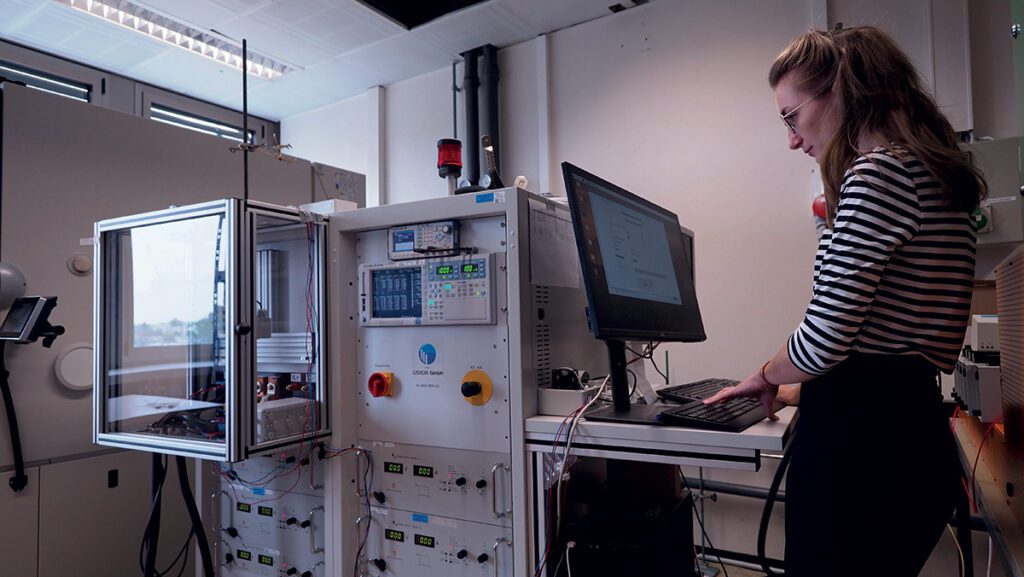
German standardization, testing and certification organization VDE has used Yokogawa Test & Measurement’s WT3000E power meter to provide a measurement setup for manufacturers to calibrate metering products for the EV charging market.
Creating a measurement system that complies with the EU Measuring Instruments Directive and Germany’s Measurement and Calibration Act was challenging, as the law specifies that meter readings must be accurate to at least 3% and no higher than the actual amount of energy supplied. This leaves minimal room for error in calibration—the power meter must be more accurate than the specification by at least a factor of 10, or ±0.3%.
The WT3000E power meter has an accuracy of ±0.04%, almost an order of magnitude better than the minimum specification, according to Yokogawa. Combined with a programmable power supply controlled by Yokogawa’s FG420 function generator, the system can accurately measure voltage, current and total energy. The WT3000E has a short interval between stored samples of 50 ms, and convenient interfacing with precision current sensors supplied by LEM/SIGNALTEC.


For new designs, Yokogawa offers the WT3000E’s successor product, the WT5000 Precision Power Analyzer, which is designed to provide a high level of precision and performance in the most demanding applications. In addition to increased accuracy of ±0.03%, it offers high-speed operation up to 10 MS/s (18 bit) and power measurement bandwidth of 5 MHz.
The test system has been accredited by Germany’s national Physikalisch Technische Bundesanstalt (Federal Physical Technical Institute) and is now being used by companies manufacturing energy meters for public EV charging stations.
“The Yokogawa WT3000E has been used in our calibration departments for years, and measures so precisely that it is also perfectly suited for the charging station test bench,” said VDE engineer Sven Grünberg.
Source: Yokogawa Test & Measurement
from Charged EVs https://ift.tt/sKXyhBI


No comments:
Post a Comment